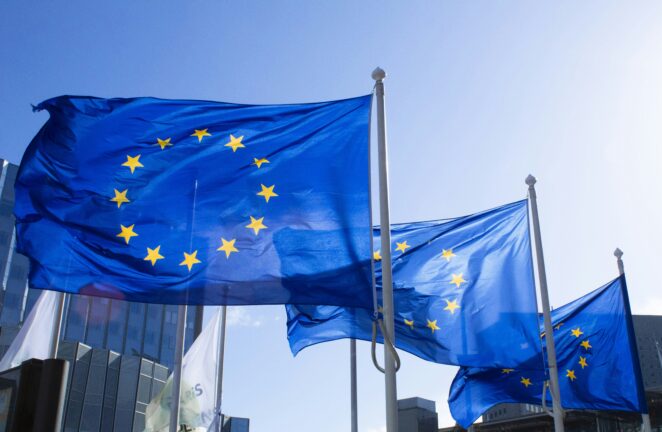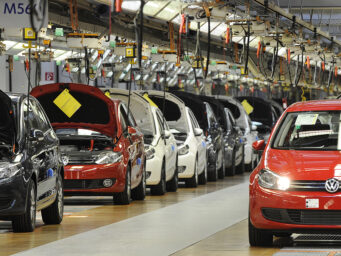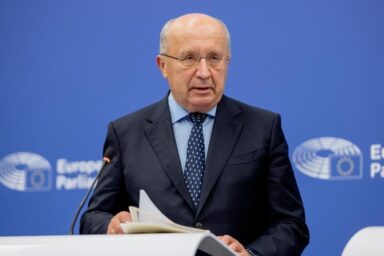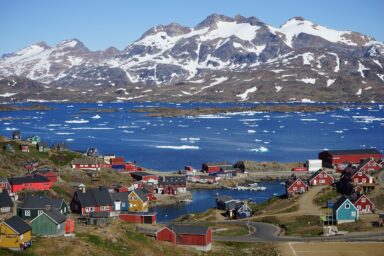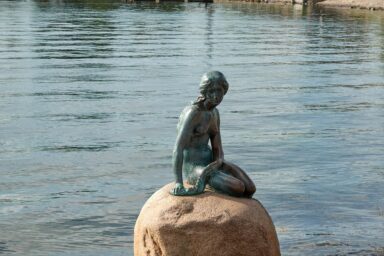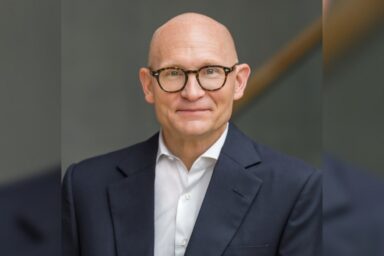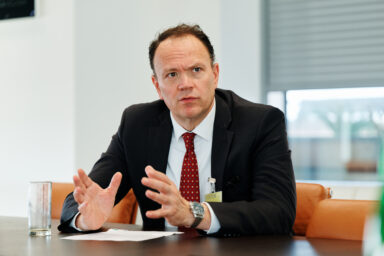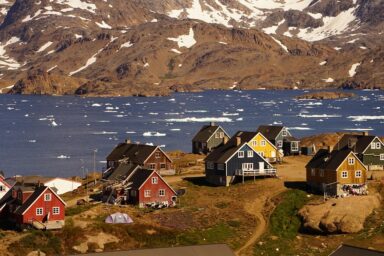Ministers of European Affairs from the 27-member bloc met at an informal meeting in Copenhagen on Tuesday organised by the Danish presidency. On the agenda were EU enlargement and the rule of law, with much of the discussion focusing on Ukraine, Moldova as well as western Balkan countries.
These included Montenegro and Albania, now well on the path to join. Montenegro has already opened all of the clusters on its path to accession and it could become the 28th member of the EU in 2028, the Commissioner for Enlargement Marta Kos said. She had plenty of praise for both for the work their governments had done, especially when it came to reforms, saying things were “moving faster than ever before and both countries have really done their homework.” As for Ukraine, Commissioner Kos said the country had made “remarkable progress” in extremely difficult circumstances:
“It is the first time in the history of the EU that we have a candidate country which is at war, and the latest escalation of Russian attacks casts serious doubts about any willingness by Russia to move towards peace.”
The EU first officially offered Ukraine candidate status — the first formal step toward membership — back in June 2022, roughly five months after President Vladimir Putin ordered Russian troops to invade the sovereign country.
You might be interested
All but one
Ahead of Tuesday’s meeting, France’s Minister Delegate for European Affairs Benjamin Haddad said that when it came to Ukraine, “26 countries around the table were ready to move forward…” Hungary, he pointed out, was the last, holding up the process for “domestic and bilateral” reasons. He suggested that ministers would have to focus on a way of resolving the impasse.
Hungary’s own minister arguably sidestepped the question by simply calling it a political issue, arguing that “governments needed to be aware of what the electorate in the member states actually wants.”
Takeaways from Tuesday’s meeting
Denmark’s Minister for European Affairs Marie Bjerre, Commissioner for Enlargement Marta Kos and the Commissioner for Democracy, Justice, the Rule of Law and Consumer Protection Michael McGrath revealed more about which countries were discussed on their path to joining. They also discussed why enlargement has taken on new or renewed importance given the geopolitical realities of the moment.
Minister Bjerre was the first to speak:
“Our meeting today has been devoted to enlargement. We are living in troubled times. The Russians’ war against Ukraine, the new political winds blowing from the US, make enlargement more important today perhaps than ever before. It’s a new relevance (…) it has gained a new momentum (…) it is a geopolitical necessity.”
Both EU commissioners beside her wholeheartedly agreed.
Geopolitical contest
Marta Kos thanked the Danish Presidency for making enlargement a top priority and added that the Copenhagen criteria, although more than 30 years old, had been excellent for the enlargement process in the past as now. She welcomed how “concrete” Tuesday’s meeting had been, and also pointed out how accessions past and present had been in line with the Copenhagen criteria (the essential rules and conditions that any country must meet to join the European Union, across three basic pillars).
“We discussed the conditions for successful reforms and how we can make citizens of future member states feel EU benefits before their countries become members of the EU. As has been mentioned, EU enlargement has become somehow tangled in this geopolitical contest between free democratic societies on the one side and authoritarian regimes on the other side. We see this most brutally in Ukraine but also in more subtle hybrid ways in other candidate countries such as Moldova, where they will have parliamentary elections at the end of September. We see really huge engagement financially on the side of Russia to [take] Moldova off of the European path.”
In apparent response to current problems, she added:
“This is why I often refer to enlargement as more than enlargement itself: for me it is really about the unification of Europe, where we will be able to secure security for all of us only by integration (…) My message today is that the doors of our union are open. And those doors will stay open for those who meet our criteria.”
Will Hungary get on board?
Whether Hungary gets on board is the big question next; at the same time, the European Commission was forced to clarify on Tuesday that in no way were European priorities represented by Slovakia’s Prime Minister Robert Fico, who met with Russian President Vladimir Putin in Beijing where China’s Xi Jinping has held a major summit countering steps on the other side of the world. Mr Fico repeatedly stressed Slovakia’s commitment to the EU, but his willingness to meet with Mr Putin at this time has certainly sent a very different message.
For ministers gathered in Copenhagen, the message was clear: enlargement is no longer just a policy question, but a strategic one. The credibility of the EU — and its ability to shape its future — will arguably depend on how well it can hold together now and in what are most certainly difficult days.
